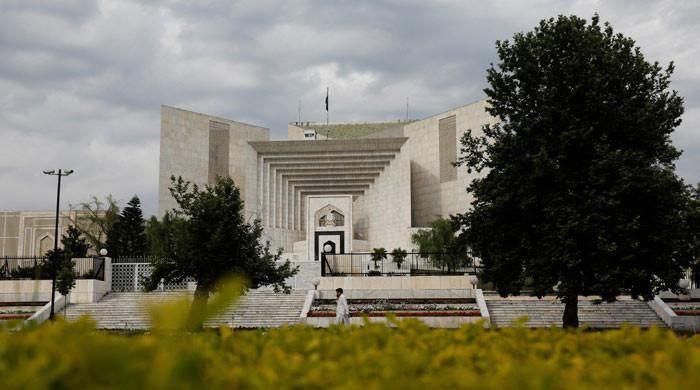- CJP nominates Justice (retd) Alam and Justice (retd) Baqir.
- Four former Supreme Court judges have proposed to be appointed ad hoc.
- The judge may be appointed ad hoc within three years of his retirement.
ISLAMABAD: The Judicial Commission of Pakistan (JCP) will consider appointing four ad hoc judges to reduce the pending cases in the Supreme Court, sources said. Geo news.
According to sources, Chief Justice of Pakistan (CJP) Qazi Faez Isa has nominated Justice (retd) Mushir Alam and Justice (retd) Maqbool Baqir as ad hoc judges.
Meanwhile, the names of Justice (retd) Mazhar Alam Miankhel and Justice (retd) Sardar Tariq Masood are also included in the list.
Justice Alam retired as a Supreme Court judge in August 2021, Justice Baqar in April 2022, Justice Miankhel in July 2022 and Justice Masood in March 2024.
A retired judge can be appointed ad hoc in three years or less, and it has been proposed that four former Supreme Court judges be appointed ad hoc for three years.
The meeting of the Judiciary Committee will be held on July 19 at 3 p.m. in the conference room of the Supreme Court.
The official note from the meeting says that despite best efforts, cases at the high court continue to pile up.
“In view of the huge pendency of cases and the increasing trend of initiation of cases in the Supreme Court, an effective way of ensuring that more cases are decided than are initiated and of reducing, and hopefully eliminating, cases which are pending for decision for several years, would be to appoint experienced judges as ad hoc judges of the Supreme Court,” the notification said.
The Law and Justice Commission of Pakistan, in its semi-annual judicial statistics report, said the number of pending cases in courts rose to 2.26 million during the second half of 2023, increasing the overall pendency of cases by 3.9%.
The report revealed that 82% of the pending cases (1.86 million) were at the district court level and the remaining 18% (0.39 million cases) were at the higher level, including the Supreme Court, the Federal Sharia Court and high courts.
According to the report, 2.38 million new cases were filed during the period, while the courts managed to decide 2.30 million cases.
Despite a significant number of resolved cases, pending cases increased due to the continuous filing of new ones, the statement said.
“Civil cases make up 81% of pending cases in the higher courts, while criminal cases account for 19%.”












